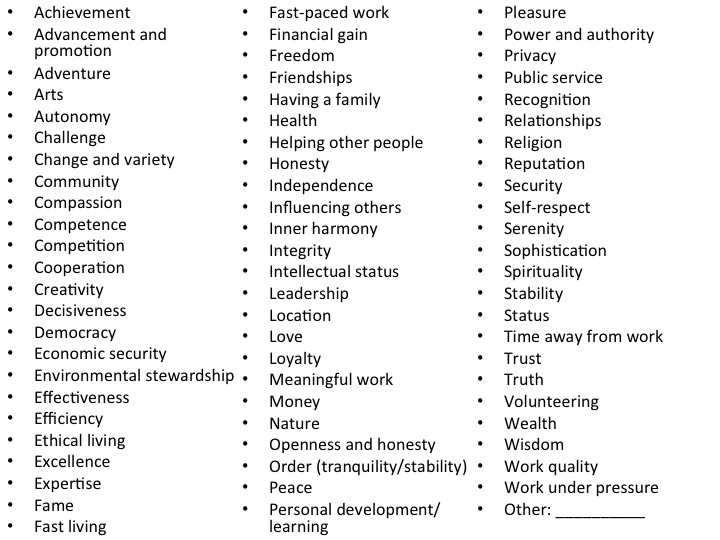Defining Personal Values For College Students – Eric’s Story
 I’m Eric Philippou, and I’m writing this blog as part of my summer internship at Metcalf & Associates, a leadership and management consulting firm. I am entering my final semester at The Ohio State University in the fall, majoring in Strategic Communication. I like marketing, and I plan to go to business school in a few years. I’m also on the varsity fencing team at Ohio State.
I’m Eric Philippou, and I’m writing this blog as part of my summer internship at Metcalf & Associates, a leadership and management consulting firm. I am entering my final semester at The Ohio State University in the fall, majoring in Strategic Communication. I like marketing, and I plan to go to business school in a few years. I’m also on the varsity fencing team at Ohio State.
This summer, I am starting a blog that helps students find their life purposes, plus a step-by-step guide on how to bring this vision into reality. The information I am giving you is from a workbook written by a combination of college faculty and leadership development and executive coaching experts who make business executives very successful. This book will be published late in 2014. In this post, you will find your personal values. Throughout this blog, I will provide my own answers to the exercises as an example.
This is part two of the three-part Vision topic. My answers are in italics.
Checklist for personal values
Step 1: Define what you value most. Values shape the way we think, feel, and act in our daily lives. To effectively achieve your life goals, they must match your values. From this list, select your top ten most important values to living your perfect life.
List of Personal Values:
- My top 10: integrity, love, expertise, excellence, meaningful work, creativity, freedom, influencing others, self-respect, order
Step 2: Elimination. Now, from your top ten, narrow your list down to your top five values. Now narrow it down to your top three.
- Top 5: integrity, love, excellence, meaningful work, influencing others
- Top 3: love, excellence, meaningful work
Step 3: Integration. From your top three values, ask yourself:
- How would your life be different if those values were prominent and practiced more?
- I would probably have better results in school, work, and personal relationships. If practiced earlier, like in high school, I may be at a different university or even a different area of study.
- What does each value mean, exactly? What do you expect from yourself, even in difficult times?
- Love: care for the people around me, especially for the people close to me. In difficult times, I would think of those closest to me and perhaps look to them for help or motivation.
- Excellence: overall skill, expertise, brilliance, and high-quality performance. I expect myself to always pursue excellence in everything I do, especially in difficult times when it is needed the most.
- Meaningful Work: the work I do excites me, and I look forward to going to work and doing it every day. In difficult times, I would like my work to be meaningful, and something I love to do, because it will push me to keep going and give me less incentive to quit.
- Does the personal vision you outlined reflect those values?
- Yes, as far as I can tell.
- If not, should your personal vision be modified?
- If not, should you reconsider your values?
- If not, should your personal vision be modified?
- Are you willing to create a life in which these values are paramount, and help an organization put those values into action?
- Now that I see how it could benefit me, yes. The things holding me back from doing so seem less important, and almost silly, so I have no reason not to go forward with such a life.
Real-World Application
So you’ve narrowed down your values and determined how to integrate them into your life. Try something out: write down your top three values and tape them somewhere so that you see it a lot, and strictly live by those values every hour of every day for the next few days. After a few days, monitor any differences in your usual days and the last few days of acting on your values. I tried this, and I found myself to be more productive in my work, more vibrant during personal interactions, and overall very happy. Hopefully you’ll get similar results, and if you do, you know you picked the right values to live by.
In my next post, I will discuss how to put your refined vision into a realistic plan of action, and I’ll give you some reflection questions. At the end of it, you should have a concrete plan of action that you can implement almost immediately, and you’ll be well on your way to becoming a great leader and college student.
To become a more innovative leader, you can begin by taking our free leadership assessments and then enrolling in our online leadership development program.
Check out the companion interview and past episodes of Innovating Leadership, Co-creating Our Future, via iTunes, TuneIn, Stitcher, Spotify, Amazon Music, Audible, iHeartRADIO, and NPR One. Stay up-to-date on new shows airing by following the Innovative Leadership Institute LinkedIn.
If you are interested in receiving Eric’s ongoing blog series or our other articles by email, please sign up in the box on the right labeled Get Email Updates From Us.
Photo credite www:flickr.com banksy graffiti


Leave a Reply
Want to join the discussion?Feel free to contribute!